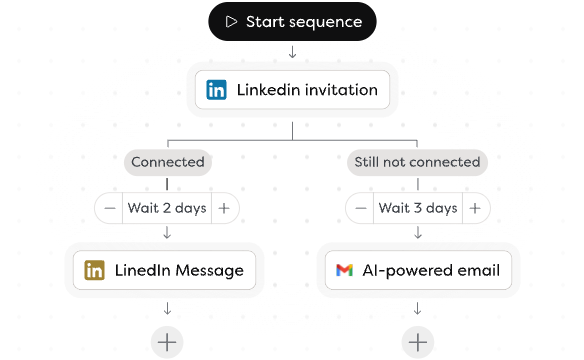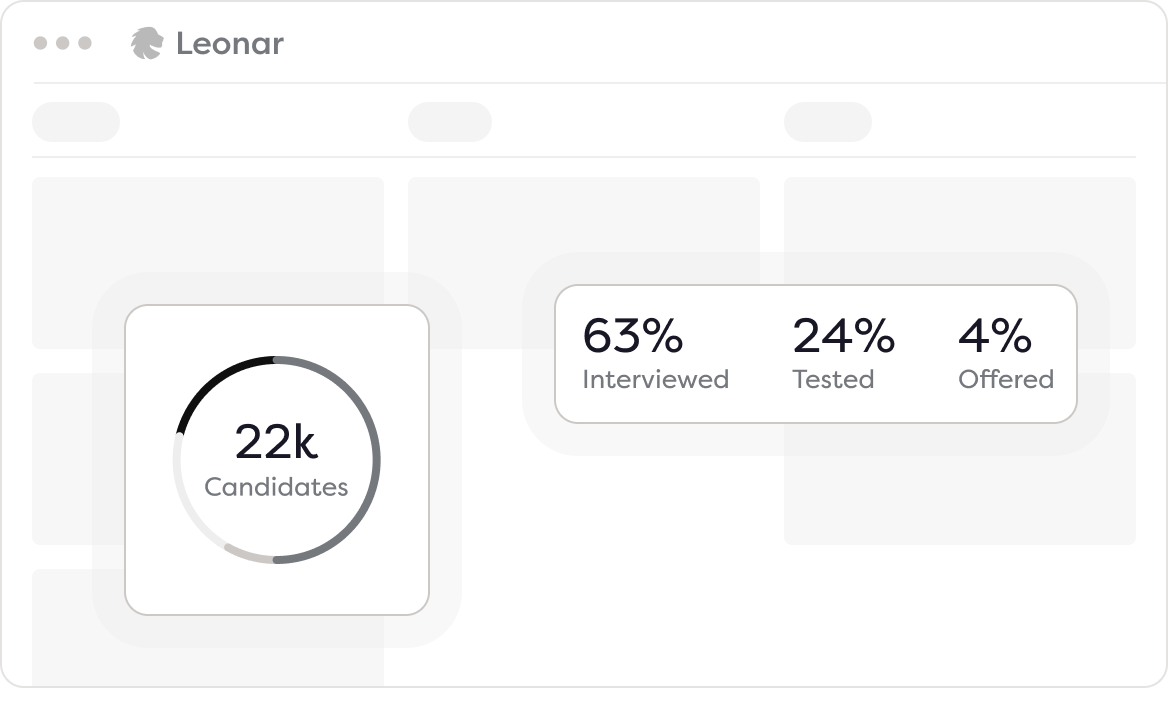Attracting top candidates to a company relies more and more on the sourcing strategies implemented by the talent acquisition managers' team.
What is candidate sourcing in recruitment?
Meanwhile companies used to post jobposts on different channels and jobboards and wait for candidates to apply (inbound recruiting), candidate sourcing is when recruiters start to actively look for candidates who can be open to new opportunities.
Candidates sourcing is a process part of the outboung recruiting. Whereas sourcing used to be mainly done by recruiting agencies and head hunters, it is now a skill mandatory for all recruiters and talent acquisition managers.
- Top talents are almost never actively looking for a new job, they never apply on jobboards
- Data show that sourced candidates are usually two times more efficient than other candidates
- There is a talent shortage on many roles, requiring companies to invest on outbound recruiting
How to find top talents? How to implement a sourcing strategy in your compnay in order to hire the best candidates?
Use your talent pool and your network
One the mistake usually done in sourcing is that recruiters' tend to start from scratch every time they need to hunt from. Using your ATS (Applicant Tracking System) or your recruitment CRM, you can find all the candidates you have already engaged with.
For instance, using Leonar you can set different talent pools that will be filled with the different candidates you engage with.
You will be able to source directly in these different talent pools, where you will see :
- Which recruiters have already discussed with this candidate
- What was the channel used (Linkedin, Inmail, email)
- If the candidate is open to new opportunities or not
Nurtering your candidates database is one area of improvement that will help you engage with previous leads and build a strong candidates pipeline.

Become a Linkedin master
Even if Linkedin is not the only source of candidates for recruiters, most of the outbound recruiting is done through this network. It will be mandatory for you to be a master of:
- Linkedin Recruiter Lite or Pro, the different features and filters available
- How to do boolean search on Linkedin Recruiter
- Know all the possibilities given by Linkedin to reach out to candidates
To learn more about how to source on Linkedin, you can find here the 7 Sourcing Techniques on Linkedin Recruiter Pro and Lite.
Engage with candidates on several channels
You can engage with candidates through many different channels:
- You can send Linkedin inmails
- You can send connection request also on Linkedin
- Some recruiters also send voice mails to candidates on Linkedin (and find out that they have a better response rate)You can try to find out their personal email adress and send them emails
- Or you can also use other social networks that are used by your target audience (Twitter, StackOverFlow)
Leonar will help you build sequences using these different possibilies

Follow up with candidates
Top talents are always busy. That is why you need to often send follow up messages to them.
Many candidates only respond after three different messages. You will need to build message sequences to make sure you will get the maximum response rate by candidates, using the different channels listed above.

Always give feedback to the candidates you engage with. If there are not fit for the job, they can be tomorrow. It will also be a benefit for your employer brand.
Automate what can be automated
Sourcing can be a really time consuming process. Exporting and classifying candidates is the first step that can be automated.
Using Leonar, for each step of your sequence, you will be able to define if you want it to be done automatically or if it needs to be validated. Usually, recruiters tend to automate the messages if they never had engage with the candidate before.

Whenever the candidate respond to a recruiter on Linkedin or by email, the automatic sequence will stop.
Measure the performance of the sourcing strategies
The sourcing process is like any process. To be improved, it needs to be measured. Following KPIs need to be tracked in order to adapt the sourcing strategy to the recruitment market:
- Candidates contacted: Many jobs need a high quantity of candidates contacted before finding the perfect match
- Acceptance rate: If the acceptance rate is too low, you will need to improve and perfect the messages sent to the candidates
- Percentage of candidates that are not interested in the opportunity. Beside this figure, you will also need to know why they refused the job. Was it because of the location? because of the salary?

Recruitment, nowadays, needs to be Data-Driven. Without these metrics, it would be tough for recruiters to improve their processes. Recruitment CRM usually provide dashboards with all the analytics required.
Use the best tools designed for your sourcing strategy
Applicant Tracking System (ATS) is the perfect software to manage inbound recruiting. It can also be used for managing talent pools and pipelines. Sourcing in your ATS is possible if you do not want to reach out to new and external candidates.
However, if you want to have a tool that will help you on all steps of the sourcing process, you will have to use a recruitment CRM. It is the software that will help you:
- Export and import candidates from social network (mainly Linkedin)
- Search within your talent pools using filters adapted to your business
- Design messages sequences through all channels possible (Linkedin, inmail & emails)
- Work with all the recruiters and hiring managers of your team on the same tool
Using a recruitment CRM you divide by 4 the times spent on sourcing, and increase highly your response rate
Work alongside with the hiring manager
During all the recruitment process, hiring managers have a main role to play.
Of course, during a kick off meeting, they need to:
- Align on the qualifications and experience required
- List the keywords to search (job title, competencies, etc.)
- List the targeted companies where it may be interesting to search for candidates
Beside the kick off, recruiters and hiring managers must collaborate during the whole process.
- At the beginning, they need to run few searches together and validate the first candidates. Hiring managers will help by explaining why each candidate would or would not be a good fit for the role.
- Review the talent pipelines from time to time, to confirm the requirements defined during the kick off meeting.
During the whole process, both hiring managers and recruiters need to think out of the box and innovate to find out the best candidates.

.jpg)
.svg)



